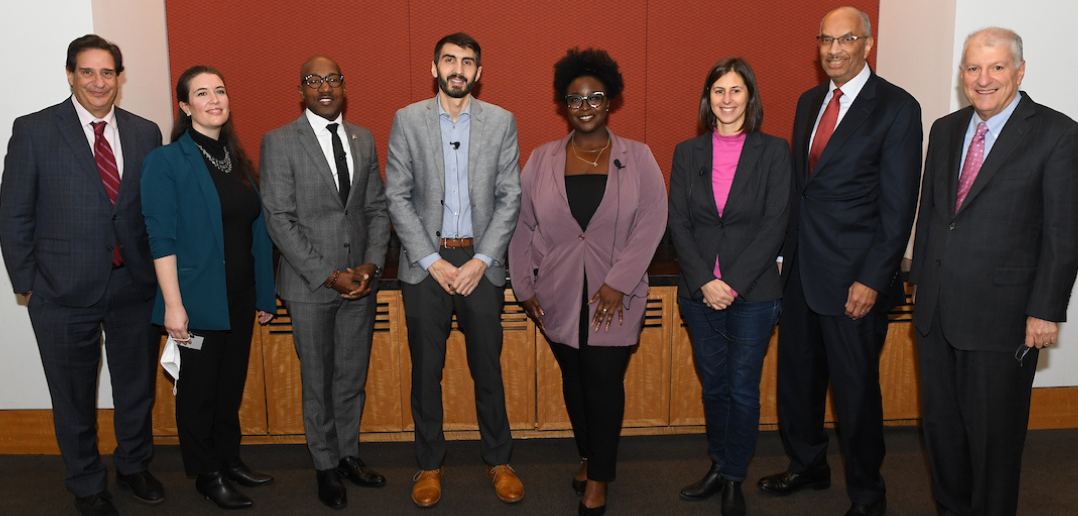State and local court fees disproportionately affect people of color and when people can’t pay them, they can face additional fees and ruined credit, making it hard to rent a home, or buy a car, and in some scenarios can even lead to incarceration.
The National Center for Access to Justice (NCAJ) at Fordham Law School, hosted a panel discussion in December that looked at these and other harmful impacts of fines and fees on low-income communities in New York. The event was co-presented by the NCAJ, the New York County Lawyers Association, and Fordham Law’s Access to Justice Initiative
“The issue of fines and fees has been in the public consciousness for some time. Really outrageous fines and fees both feed the crisis of mass incarceration and cause their own crises in people’s lives. What seem like small amounts of money, can pose insurmountable obstacles to so many, reinforcing patterns of racism and funding our government on the backs of people who can least afford to pay,” said Fordham Law Dean Matthew Diller.
The NCAJ found that state and local courts sentence millions of Americans to pay fines every year as punishment for a wide range of offenses, from traffic and municipal code violations, to felonies. Courts then tax people with additional fees, surcharges, and other assessments that can add up to thousands of dollars and steep penalties if a person cannot afford to pay.
Racial disparities are often at play in how fines and fees are collected, according to panelist Claudia Wilner, director of litigation and advocacy at the National Center for Law and Economic Justice. Wilner highlighted a recent lawsuit filed by the Center alleging the City of Buffalo engaged in racially-biased traffic stops by setting up traffic checkpoints in mostly low-income, predominantly Black neighborhoods in the city.
“You’ve got millions of dollars that are being siphoned out of low-income communities of color, being moved into the city budget process and then redistributed, and going to wealthier and whiter communities a lot of the time. These same areas that are over-policed and over-fined, don’t get their fair share of other city resources, whether it’s education, health, housing, or transportation,” said Wilner. “It’s a really dangerous redistribution of wealth.”
In an effort to address this issue, the NCAJ, which conducts research on civil and criminal justice and provides policy solutions, has created a nationwide Fines and Fees Justice Index that measures the degree to which states have adopted policies to rein in abuses of fines and fees. With the guidance of a task force of experts from around the country, NCAJ has created 17 policy benchmarks around these practices. New York ranked third nationally, but still did poorly overall, earning only 48 out of 100 possible points.
“We look at basic questions about the laws in each state: did they eliminate legal system fees altogether? Did they eliminate fines and fees for juveniles? Do they guarantee a right to counsel before incarcerating a person for failure to pay? No state does particularly well on the index, none have all issues correct, or even most,” said David Udell, NCAJ founder and executive director. “We’re here tonight because it doesn’t always have to be this way.”
There was a consensus on the panel that unnecessary fines and fees need to be eliminated in order to ultimately solve this issue. Panelists discussed the prospects for the End Predatory Court Fees Act, a reform initiative that is currently pending in the New York legislature that would, among other things, abolish legal system fees that take the form of “surcharges” in New York and require judges to consider ability to pay when setting fines.
Other panelists at the event included Andre Ward, associate vice president of the David Rothenberg Center for Public Policy at The Fortune Society; Zach Ahmad, senior policy counsel at the New York Civil Liberties Union; and Antonya Jeffrey, New York State director of the Fines and Fees Justice Center. The event was moderated by Lauren Jones, NCAJ legal and policy director.


